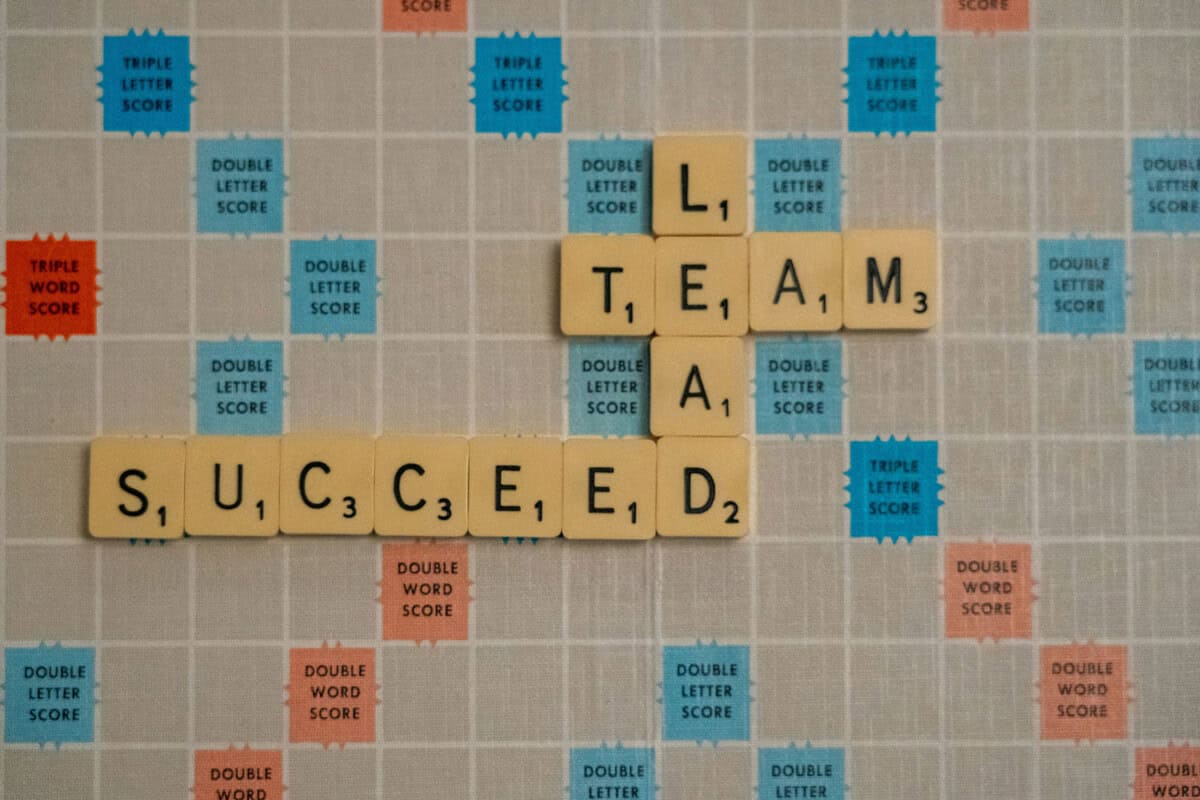Share:
Todd Davis, Contributor

We’re all familiar with intelligence quotient, or IQ, which measures our intellectual abilities. However, emotional intelligence, or EQ, is less understood by some.
It’s more than being “good with people.” It can be the critical difference between whether an otherwise smart leader will be truly effective in leading others.
Increasing the emotional intelligence of your workforce can transform a good employer into a great company where people want to work long-term.
It’s also central to the philosophy of my leadership company FranklinCovey—the home of the bestseller The 7 Habits of Highly Effective People by Dr. Stephen R. Covey, which has empowered and inspired readers for decades, helping transform millions of lives.
These habits offer a framework to help leaders and all associates manage their professional lives more effectively. This system can be taught, elevating EQ across an organization. It’s an approach to work and leadership that contends that emotional intelligence is a central and essential component of success.
So, what exactly is emotional intelligence, and why is it important for leaders to have high EQ?
Emotional intelligence in leadership involves understanding and managing one’s emotions and others’ to foster positive interactions. Key aspects include empathy, active listening, and conflict resolution. Examples include a leader showing empathy during tough times or resolving team conflicts with sensitivity.
In this article, I’ll explore what EQ is and how to boost it by practicing Covey’s seven habits.
The Origin and Evolution of Emotional Intelligence
The modern idea of emotional or social intelligence came from American psychologist Edward Thorndike in 1920.
Thorndike divided intelligence into three components: abstract intelligence, mechanical intelligence, and people, or social, intelligence. “Social intelligence is the ability to act wisely in human relations,” he wrote.
In the 1940s, cognitive psychologist David Wechsler added the notion that our environment impacts our intelligence. He framed intelligence as “the global capacity of a person to act purposefully, to think rationally, and to deal effectively with his environment.”
By 1990, psychologists Peter Salovey and John D. Mayer coined the phrase “emotional intelligence,” defining it as, “The ability to monitor one’s own and others’ feelings and emotions, to discriminate among them and use this information to guide one’s thinking and actions.”
In other words, emotions can interact with our thinking, judgment, and behavior. Being aware of that impact can improve our capacity for productive relationships. Then, the 1995 book Emotional Intelligence: Why It Can Matter More Than IQ by psychologist Daniel Goleman popularized the term beyond research circles, taking it into the public consciousness.

Goleman split EQ into five components: self-awareness, self-regulation, self-management, social awareness, and relationship management.
He told the Harvard Business Review that exhibiting high emotional intelligence is critical to effective leadership. “The most effective leaders are all alike in one crucial way: They all have a high degree of what has come to be known as emotional intelligence. It’s not that IQ and technical skills are irrelevant,” Goleman said. “They do matter, but … they are the entry-level requirements for executive positions.”
Why EQ Matters in Leadership
In the United States, many of us grew up with the business ideal that we should almost strive to become a winner-take-all leader who can win and beat all others. It’s an “I win, you lose” approach to life and business. Think Genghis Khan or the fictional Gordon Gekko from Oliver Stone’s movie Wall Street.
Gekko’s “greed is good” philosophy was modeled on the real-life bond trader Ivan Boesky, who pled guilty to insider trading in 1987. That philosophy of business as war no longer really works today (if it ever did)!
In fact, Au Bon Pain and Panera founder Ron Shaich recently debunked that idea in his book Know What Matters: Lessons from a Lifetime of Transformations. “The swashbuckling entrepreneur of popular imagination is just a myth and rarely succeeds,” Shaich wrote.
The reason emotional intelligence matters in leadership is simple—it has a high correlation with high work performance, as explained in the book Emotional Intelligence 2.0 by Dr. Travis Bradberry and Dr. Jean Greaves. “Of all the people we’ve studied at work, we’ve found that 90% of top performers are also high in emotional intelligence,” Bradberry says.
This finding is in keeping with research from Babson College Professor Scott Taylor, who has extensively studied EQ.
Taylor says emotional intelligence is essential to understanding, managing, and motivating others by deepening relationships between leaders and their teams. “Emotional intelligence predicts a battery of outcomes,” Taylor says “It seems to be the primary significant driver of performance at the individual and team level. More so than personality traits. More so than IQ.”
What makes EQ such a vital leadership tool, he says, is its impact on relationships. “At the end of the day, leadership is about relationships. It is not about being in a position of authority. We have a lot of people in positions of authority who are disasters,” Taylor says. “It has everything to do with the relationship between leader and follower.”
As Jim Collins wrote in the foreword to The 7 Habits of Highly Effective People, before Apple and Microsoft created their modern operating systems, no one had made the personal computer ubiquitous in our everyday lives.
We had hundreds of years of accumulated wisdom. Nevertheless, no one managed to assemble it into a usable interface until great leaders like Steve Jobs applied their EQ to the process.
Similarly, Collins wrote, “Covey created a standard operating system—the ‘Windows’ for personal effectiveness, and he made it easy to use.”
Covey’s 7 Habits distill the wisdom and lessons of Goleman and others into a system that anyone can follow.
The 7 Habits of Highly Effective People
| Habit 1 | Be Proactive® Focus and act on what you can control and influence instead of what you can’t. |
| Habit 2 | Begin With the End in Mind® Define clear measures of success and a plan to achieve them. |
| Habit 3 | Put First Things First® Prioritize and achieve your most important goals instead of constantly reacting to urgencies. |
| Habit 4 | Think Win-Win® Collaborate more effectively by building high-trust relationships. |
| Habit 5 | Seek First to Understand, Then to Be Understood® Influence others by developing a deep understanding of their needs and perspectives. |
| Habit 6 | Synergize® Develop innovative solutions that leverage differences and satisfy all key stakeholders. |
| Habit 7 | Sharpen the Saw® Increase motivation, energy, and work/life balance by making time for renewing activities. |
Private Victories and Public Victories on the Path to Emotional Intelligence
Most of us find ourselves in leadership roles not because we are good leaders but because we have been great individual contributors. As such, it makes sense that when we are elevated to leadership positions, we should undertake some form of education or training to elevate our leadership skills, including our EQ.
In leadership, two components of EQ are particularly important—self-awareness (both about yourself and how others perceive you) and empathy.
Self-awareness and self-management are captured in Habits 1-3. These are what Covey calls Private Victories, characterized by independence. Then, moving into the habits of Public Victories, Habits 4-6 are characterized by interdependence or success in working with other people.
In the first three habits—Be Proactive, Begin with the End in Mind, and Put First Things First—we take responsibility for our lives, set our priorities, and place our energy on achieving those goals. Only then, once we have become responsible for our own mindset and actions, can we build trusting relationships and engage with others effectively.
By using Habits 4-6—Think Win-Win, Seek First to Understand, Then Be Understood, and Synergize—we build our social awareness and relationship management skills.
Habit 7 then keeps the journey going, encouraging us to Sharpen the Saw by both practicing the habits and staying refreshed through ongoing development.
Private Victories enable the mastery of our habits to build character and interpersonal skills, and cultivate emotional intelligence, which can then be deployed to create Public Victories in the workplace and in life.
Habits 1-3 help an individual get their priorities straight and make an effective plan to then go about things the right way. Habits 4 and 5 establish trust and influence.
Habit 6 is the capstone that brings together everything that has come before, producing the benefit of working together collaboratively. As Dr. Covey said: “Synergy is better than my way or your way. It’s our way.”
Building Emotional Intelligence with the 7 Habits
Examples of Emotional Intelligence in Leadership
Great leaders don’t feel like they have all the answers themselves but surround themselves with the smartest people they can find. As a great leader once told me: “’A’s hire ‘A+’s, but ‘B’s hire ‘C’s and ‘D’s.”
One of the characteristics that separates great leaders from others is their willingness to continuously learn.
Perhaps the first step a leader can take to build EQ is to learn to break the connection between stimulus and response. Instead of being reactive, we should recognize that we have the freedom to choose how to answer, using our four unique human gifts:
- Self-awareness: Holding up a mirror and asking myself, “Could I do something differently?”
- Imagination: What are all the available choices? Are there things I am not considering?
- Conscience: Is there a right and wrong way to act? What is the right thing to do?
- Independent will: I can choose to take action or to not act.
Seven tips for leaders who want to operate with EQ:
- Identify strengths: Ask yourself what your strengths are and what are the strengths of your team members. Many of us try to overcome our weaknesses, but this doesn’t always work. The Gallup StrengthsFinder approach to teamwork assesses team members’ natural strengths, showing where they excel compared to others. The Gallup approach is to focus our energy on doing what we do best and rely on our teammates to overcome our shortcomings with their strengths.
- Balance IQ and EQ: Think of IQ as competence, or having an area of expertise, and EQ as character, or how we interact with others. For long-term, impactful results, a leader needs both IQ and EQ. Being competent in one but not the other doesn’t work.
- Engage in self-reflection: Ask yourself: “What is it like to work with me?” How would your team members answer if polled anonymously? Most people, when engaging in such self-reflection, realize that some changes would help improve outcomes and/or relationships.
- Create a culture of feedback: A leader must make it safe for their team members to offer feedback. Let them know you are sincere in wanting to identify areas for self-improvement. Empower them to be honest and make clear that you are not seeking compliments.
- Be specific: For example, ask colleagues for some suggestions that could help you boost engagement in team meetings. Make clear that you want to improve.
- Give credit: When a good leader is praised for the work of a team member, they take a moment to acknowledge that the credit should include the team member who gave them the idea in the first place. Be someone who ensures that team members receive credit for their great work.
- Be transparent: When a manager is transparent it builds trust. Share what you can with team members to both build trust and make colleagues feel empowered by information.
The Win-Win of Emotional Intelligence
In the end, when leaders display EQ, they are operating with a win-win mentality. As noted earlier, many of us base our self-worth on comparisons and competition, taking an “I win, you lose,” zero-sum view where there is only so much pie. If we’re honest, that’s not much fun!
Taking a win-win approach requires both self-respect and consideration for others. It’s being tough or courageous and considerate. It’s an approach that demands empathy and confidence, consideration and sensitivity, but also bravery.
Striking the right balance between courage and consideration is the essence of the maturity that is fundamental to win-win relationships.
Courage is our willingness and ability to speak our thoughts and feelings respectfully. Consideration is our willingness and ability to listen to others’ thoughts and feelings with respect.
A win-win leader acts with three vital characteristics:
- Integrity: not compromising your values and commitments.
- Maturity: expressing your ideas and feelings with courage and consideration for the ideas and feelings of others.
- An Abundance Mentality: believing there is plenty for everyone.
Leading with EQ is in many respects the modern way of managing effectively, bringing an abundance mentality to our work.
Relying just on IQ (intelligence/competence) is outdated and ineffective. It can lead us to the notion that there is only so much pie and that I can only win by depriving you. Being an effective leader that acknowledges IQ should be balanced with EQ is much more in tune with our modern economic ethos.
It’s an ethos of abundance, where leaders at companies from Apple to Zoom work creatively and collaboratively, seeking to create a bigger pie that has enough for everyone and more.
In the words of Dr. Covey, “In the long run, if it isn’t a win for both of us, we both lose.” Now that’s EQ.

Todd Davis
Contributor
Todd Davis is a senior consultant and thought leader at FranklinCovey, and has over 35 years of experience in human resources, talent development and executive recruiting. Todd has been with FranklinCovey for 28+ years and until recently, spent 18 of those years as Chief People Officer and Executive Vice President where he was responsible for the global talent development in over 40 offices reaching 160 countries. Additionally, he authored and co-authored best-selling books including Get Better: 15 Proven Practices to Build Effective Relationships at Work and Everyone Deserves A Great Manager. https://www.franklincovey.com


